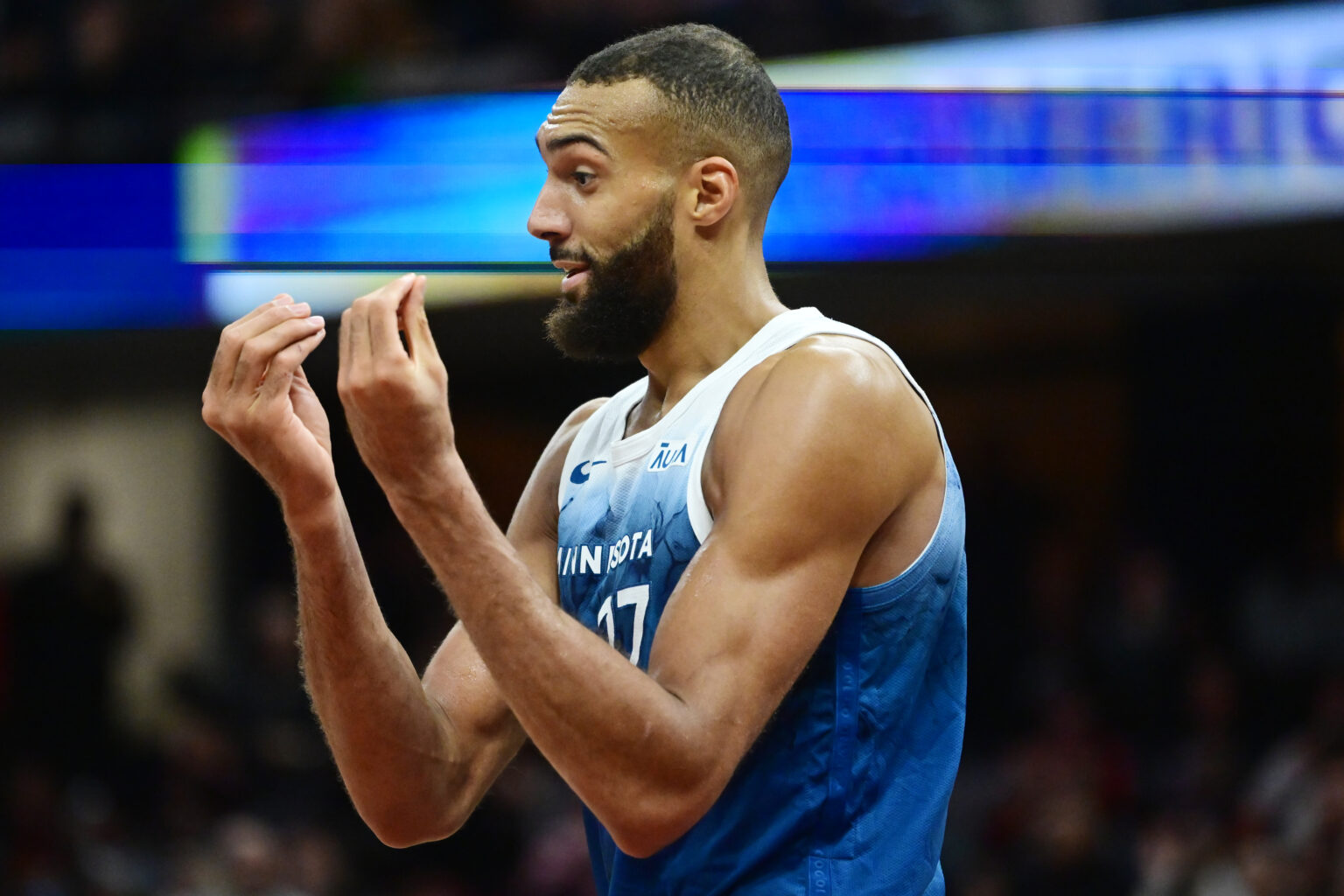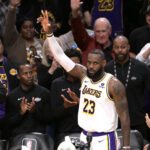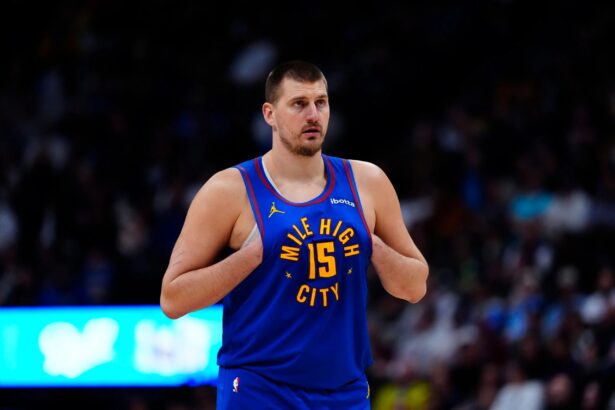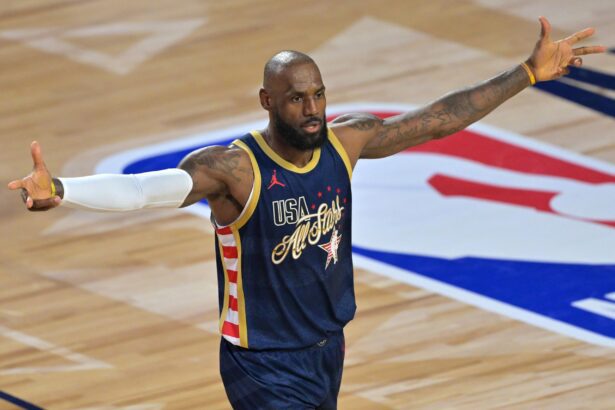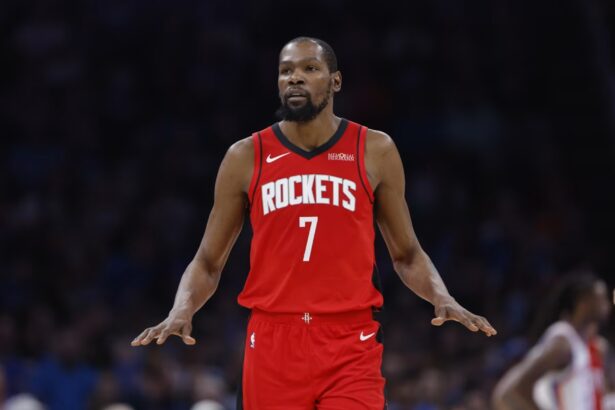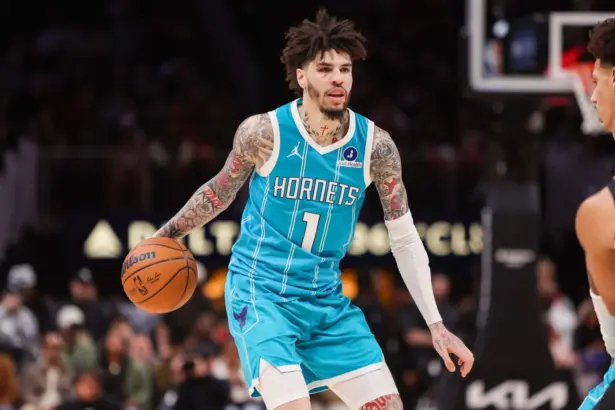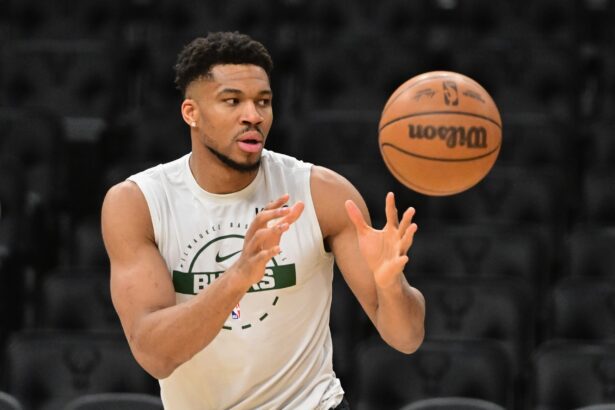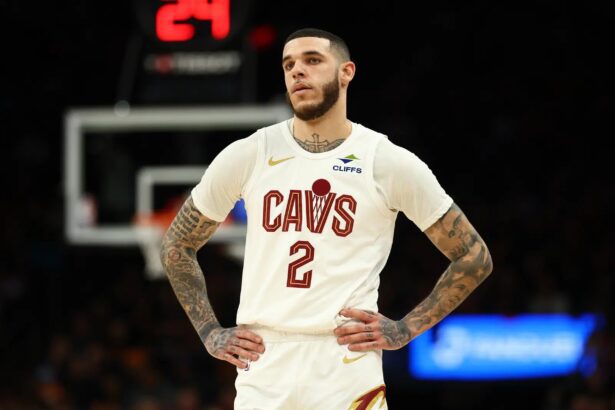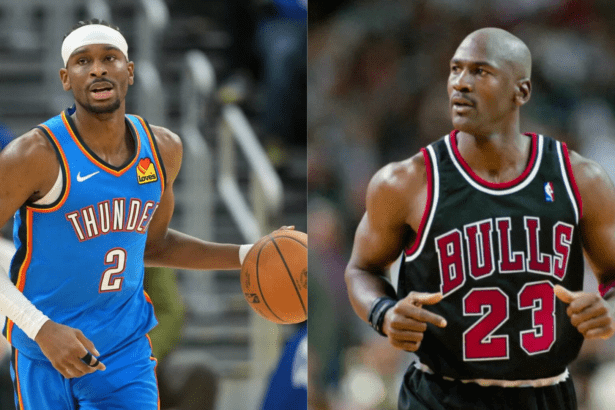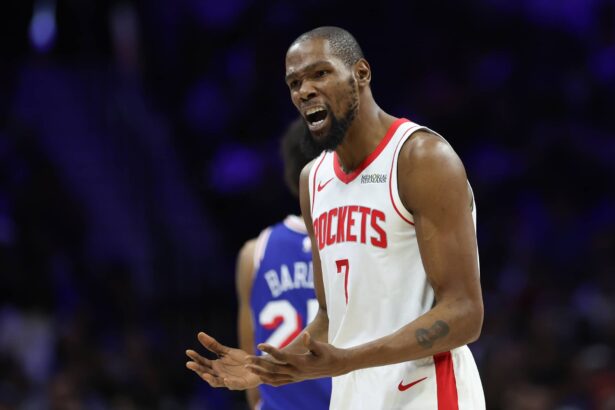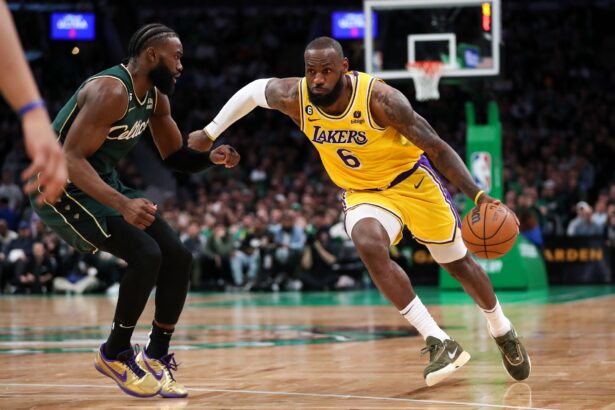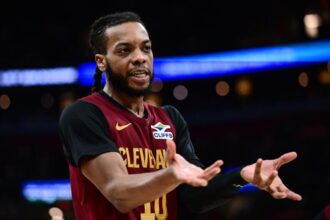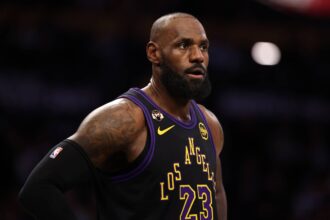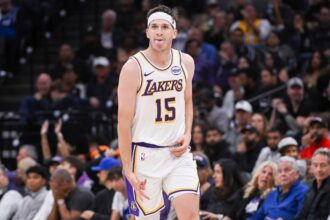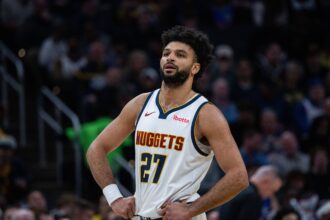Rudy Gobert’s frustrations boiled over during a critical moment in the Minnesota Timberwolves’ matchup against the Cleveland Cavaliers, ultimately costing his team dearly. With less than 30 seconds remaining and the Timberwolves clinging to a narrow 97-96 lead, Gobert was whistled for a loose ball foul.
Unhappy with the call, the three-time Defensive Player of the Year made a “money” taunt toward referee Scott Foster, insinuating that the whistle favored the Cavs due to some form of betting influence.
The gesture didn’t go unnoticed by the officials, who promptly assessed Gobert with a technical foul. This decision not only handed the Cavaliers an opportunity to tie the game but also resulted in Gobert fouling out of the contest, disqualifying him from further play. With the game now tied at 97, the Timberwolves failed to secure a victory in regulation, ultimately succumbing to the Cavaliers in overtime with a final score of 113-104.
Gobert’s frustrations likely stemmed from a combination of factors, including the foul call itself and the overall challenging nature of the game. Facing a formidable Cavaliers team missing several key players, including Donovan Mitchell and Evan Mobley, the Timberwolves found themselves in a hard-fought battle that ultimately slipped away from them.
The untimely technical foul and subsequent disqualification of Gobert undoubtedly compounded the Timberwolves’ challenges, leaving them without one of their key defensive anchors when they needed him most. Additionally, Gobert’s actions drew attention away from the game itself, shifting the focus to the controversy surrounding his gesture and its implications.
As a veteran player, Gobert is expected to maintain composure in high-pressure situations and set a positive example for his teammates. However, his actions in this instance proved costly for the Timberwolves, overshadowing what was otherwise a competitive matchup between two talented teams.
Looking ahead, Gobert and the Timberwolves will need to regroup and refocus as they continue their season, learning from this experience and striving to avoid similar pitfalls in the future. While setbacks are inevitable in sports, it’s how teams respond to adversity that ultimately defines their character and resilience.
Draymond Green Makes A Case For Rudy Gobert Winning DPOY
Draymond Green’s recent commentary on the Defensive Player of the Year (DPOY) race has sparked debate within the basketball community, particularly regarding the candidacy of rising star Victor Wembanyama. Despite Wembanyama’s impressive defensive prowess and statistical achievements, Green argues that team success should weigh heavily in the decision-making process for the award.
Wembanyama, a standout rookie, has garnered attention for his defensive impact, leading the league in several defensive categories, including 2+ block and 2+ steal games. His impressive tally of 265 “stocks” (steals + blocks) showcases his disruptive presence on the court. However, despite his statistical dominance, Wembanyama’s team, the San Antonio Spurs, rank 24th in defensive efficiency—a factor that Green believes should disqualify him from DPOY consideration.
In contrast, Green points to Rudy Gobert of the Minnesota Timberwolves as a more deserving candidate for the award. Gobert, known for his defensive prowess and rim protection, anchors the league’s top-ranked defense with the Minnesota Timberwolves. Despite facing criticism for his offensive limitations, Gobert’s impact on the defensive end is undeniable, averaging 2.1 blocks per game and significantly contributing to his team’s success.
While Wembanyama’s individual defensive statistics may surpass those of Gobert, Green argues that the overall defensive performance of a player’s team should be a crucial factor in DPOY voting. The Timberwolves’ top defensive ranking bolsters Gobert’s case for the award, highlighting his integral role in elevating his team’s defensive prowess.
Ultimately, Green’s remarks underscore the complexity of DPOY deliberations, which often require a balance between individual excellence and team success. While Wembanyama’s individual achievements are commendable, Green’s emphasis on team performance serves as a reminder of the multifaceted nature of defensive contributions in basketball.
As the season progresses, the debate surrounding the DPOY race is likely to intensify, with arguments for both individual brilliance and team impact shaping the narrative.
Thank you for being a valued reader of Fadeaway World. If you liked this article, please consider following us on Google News. We really appreciate your support.

